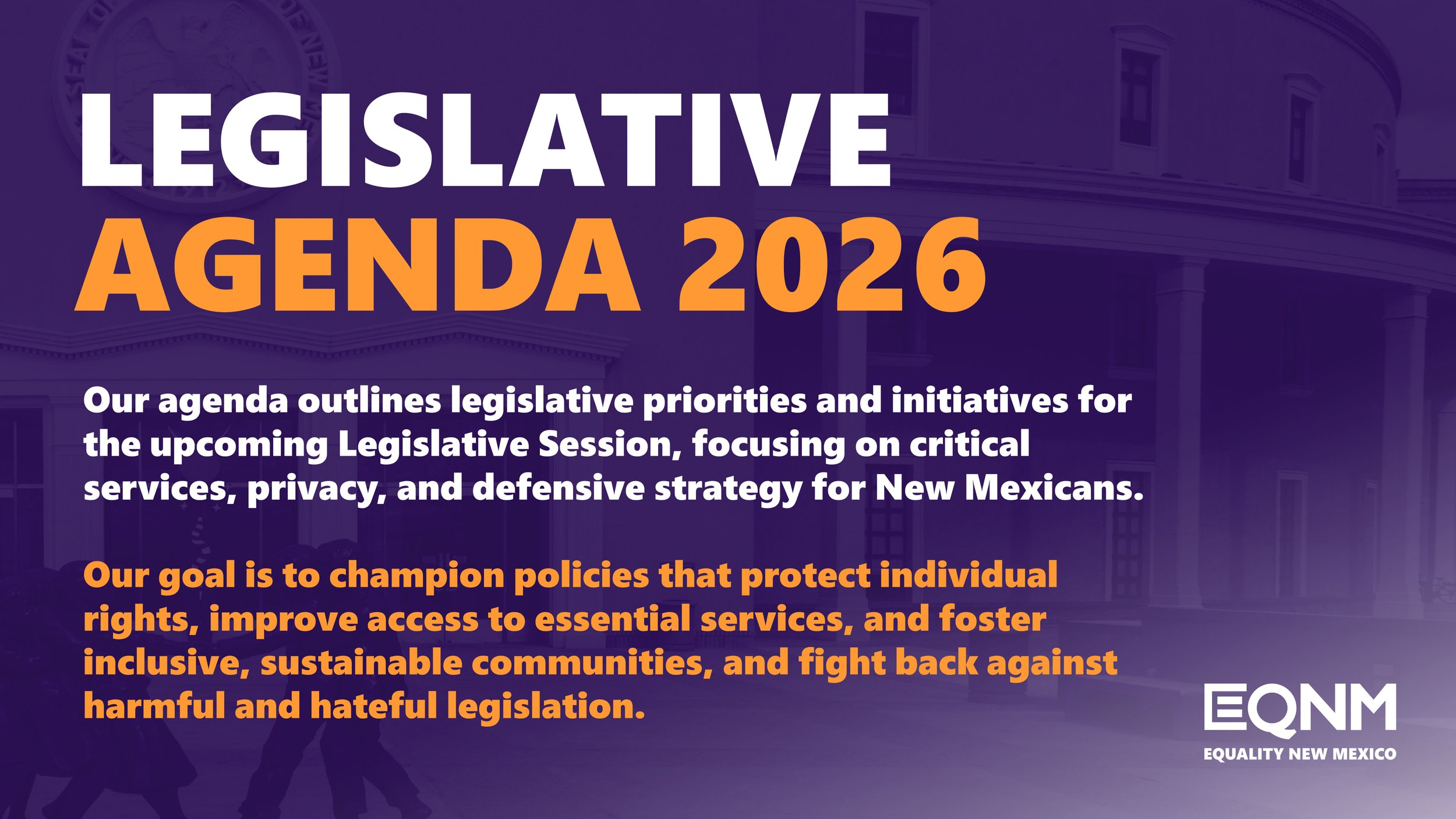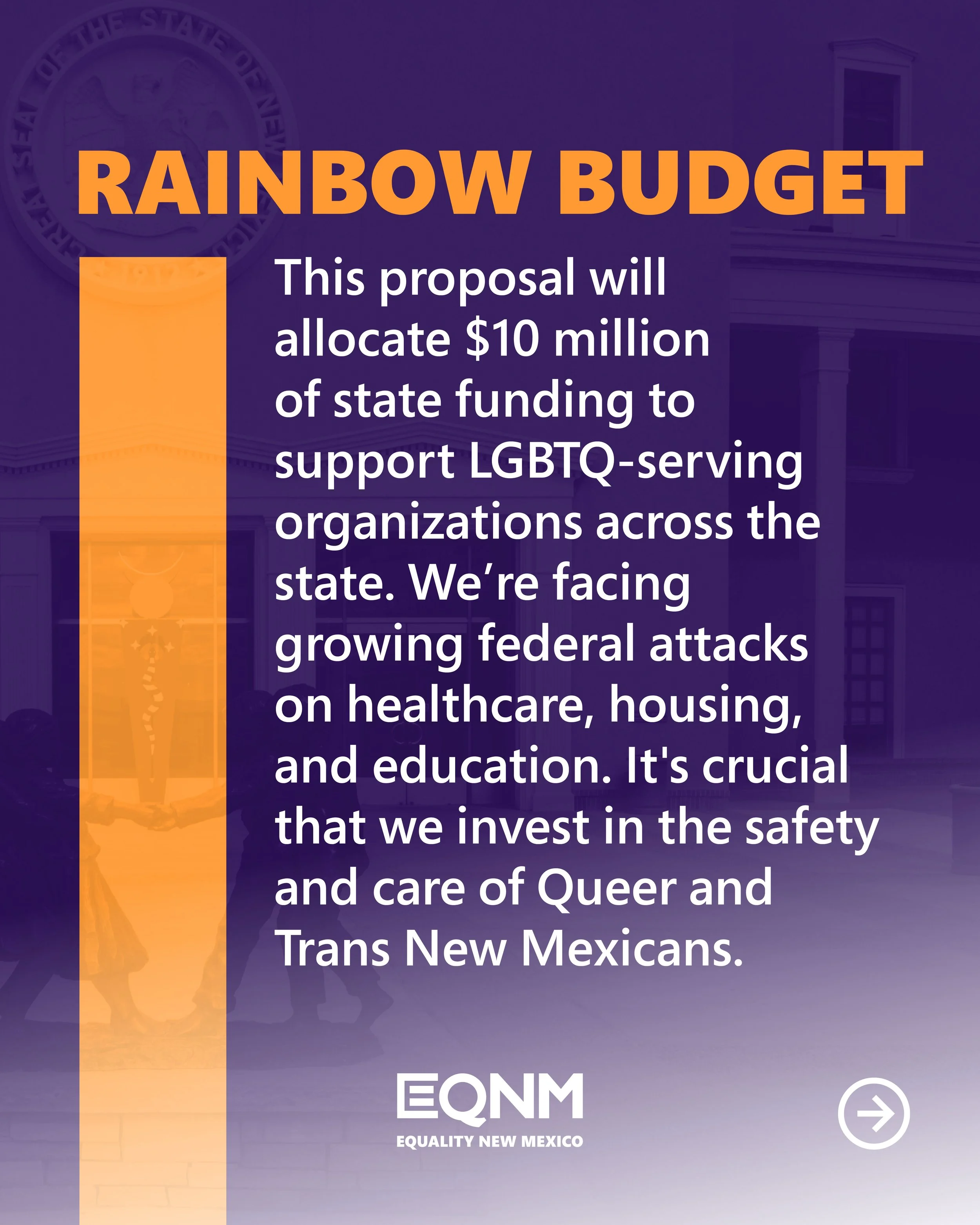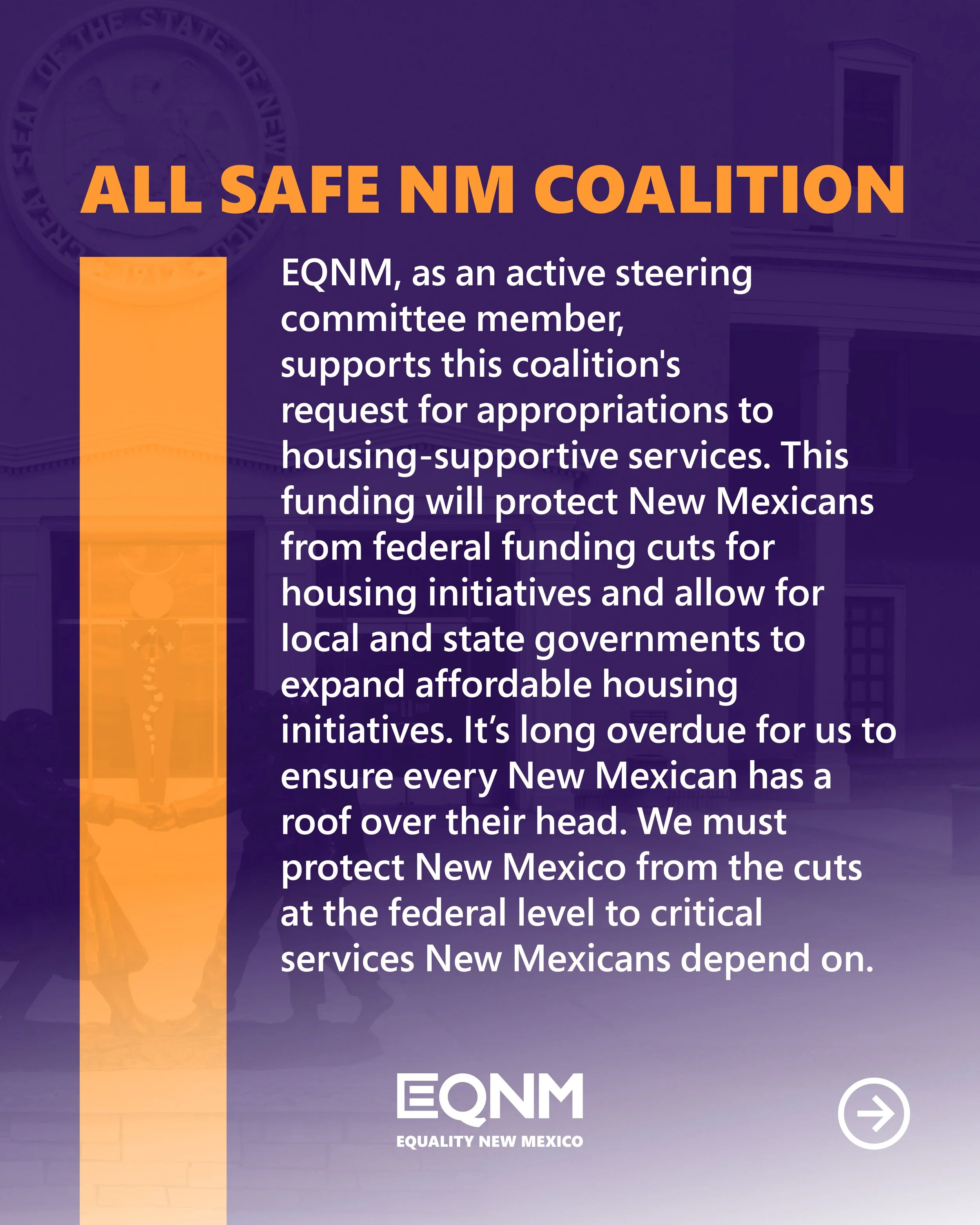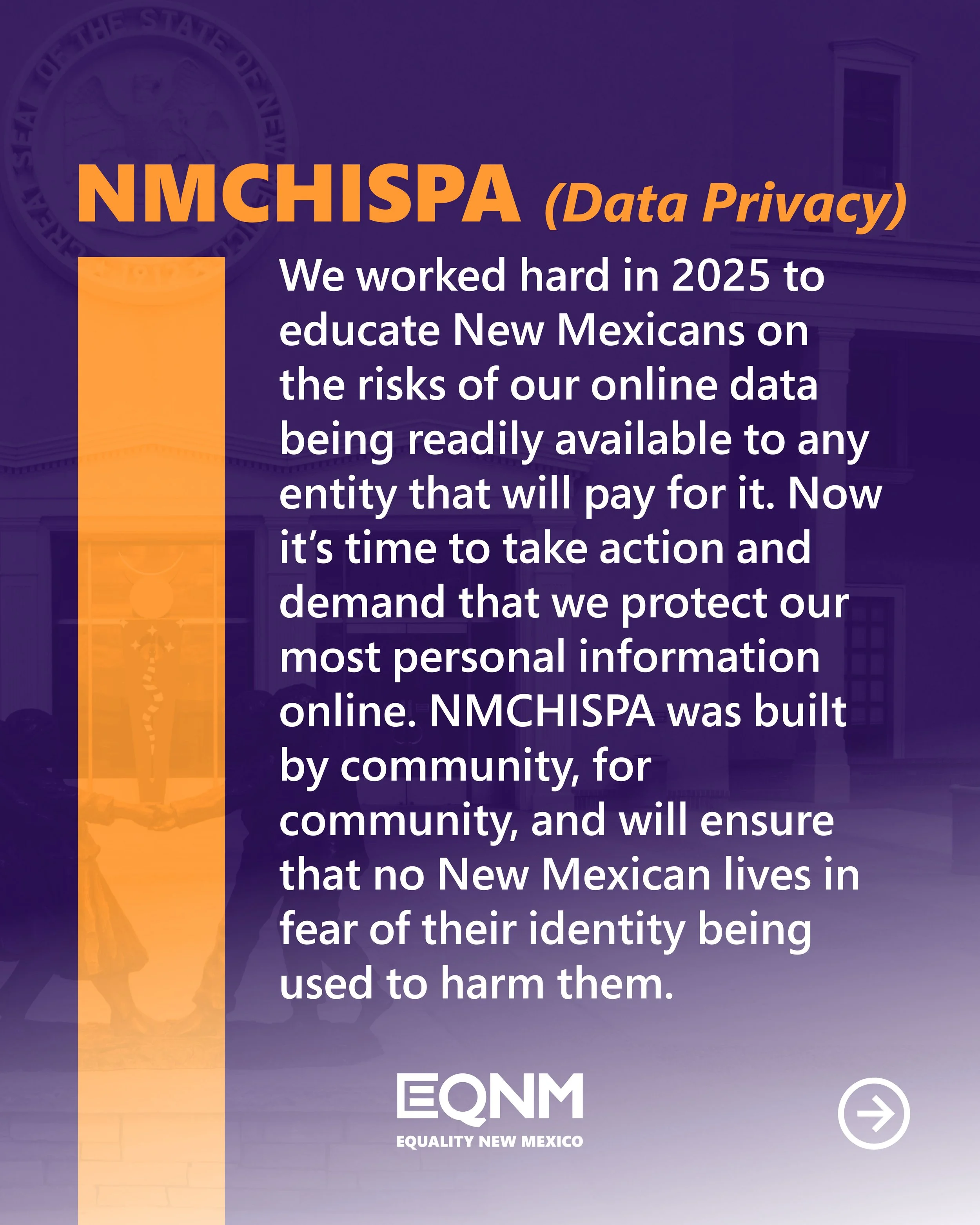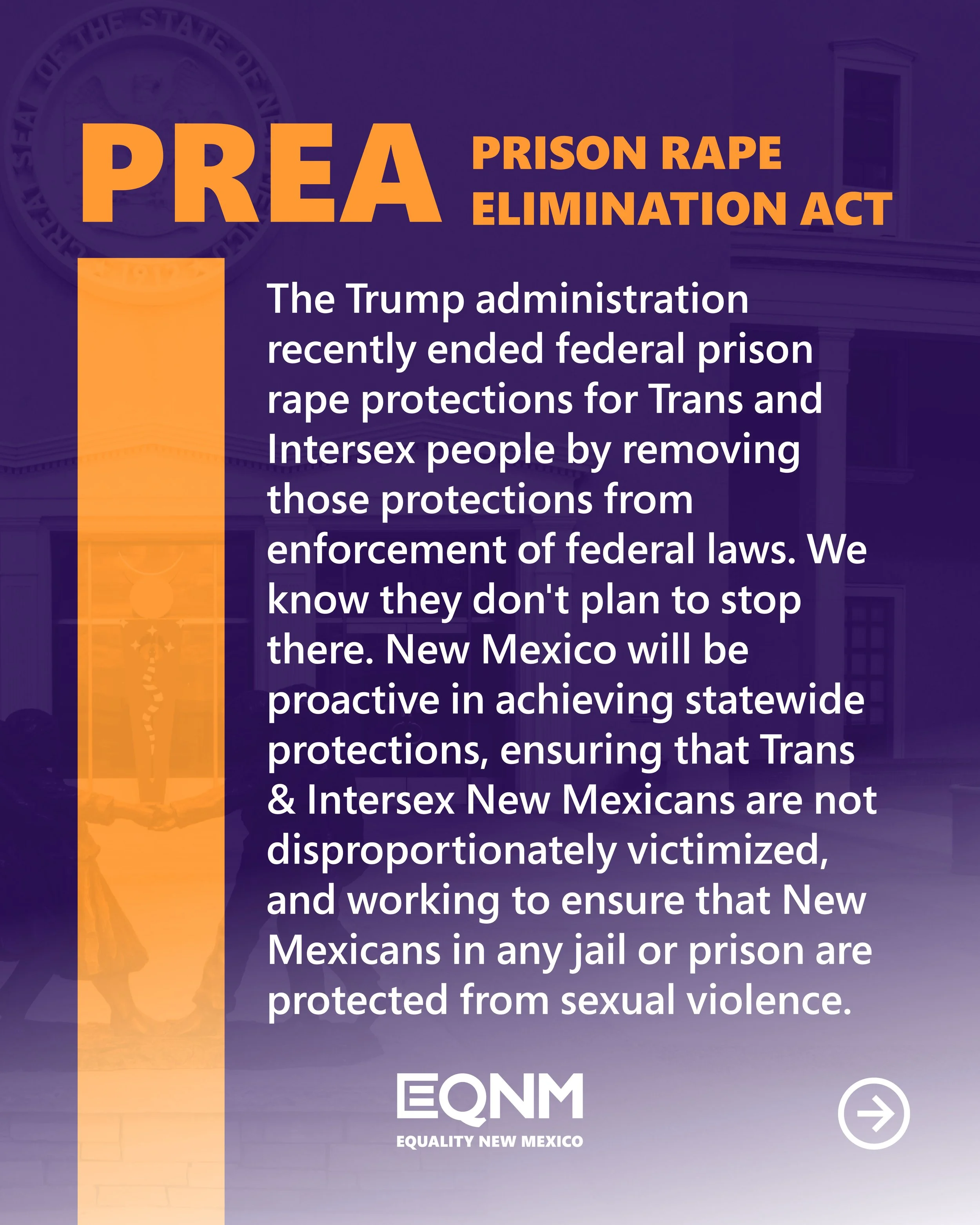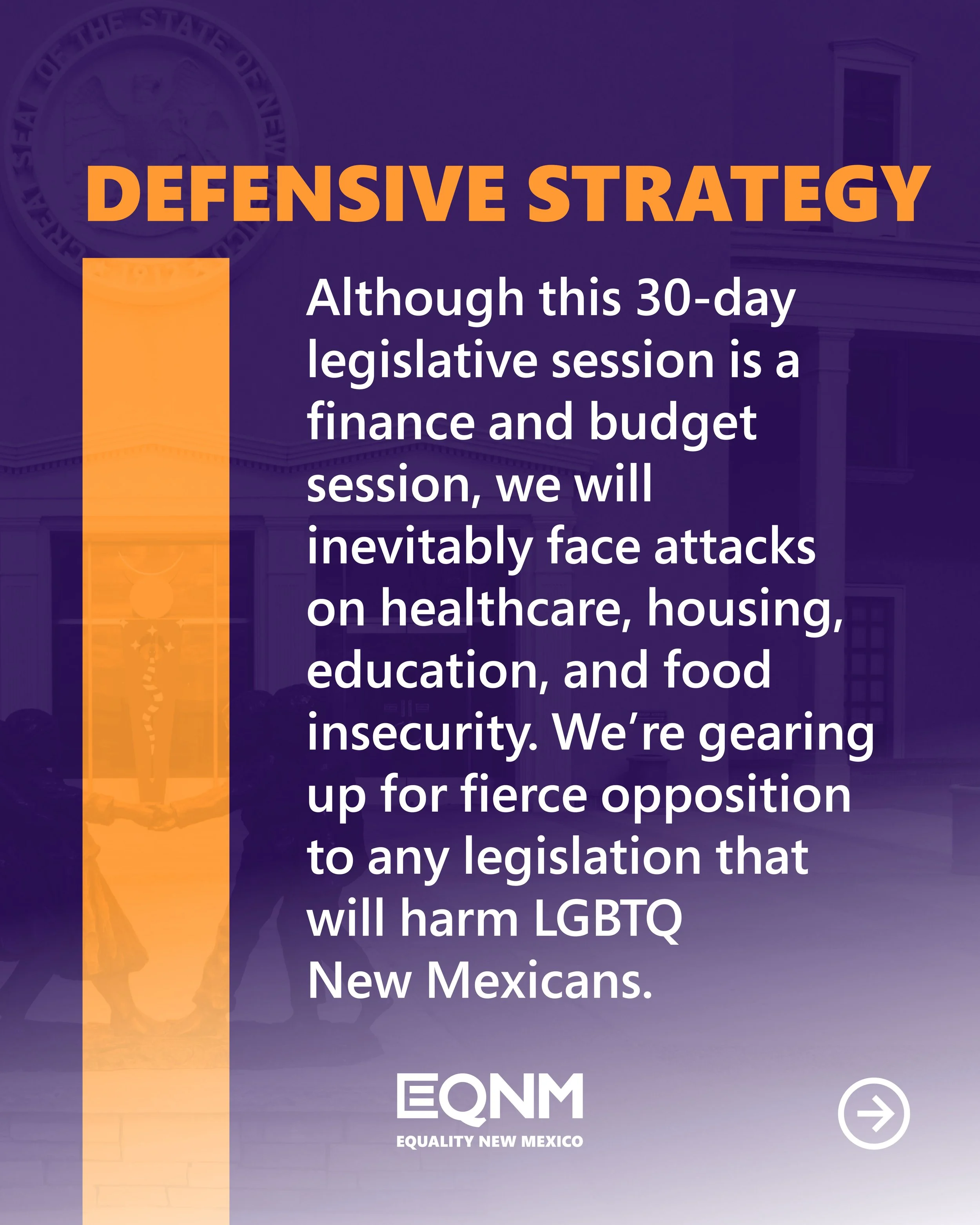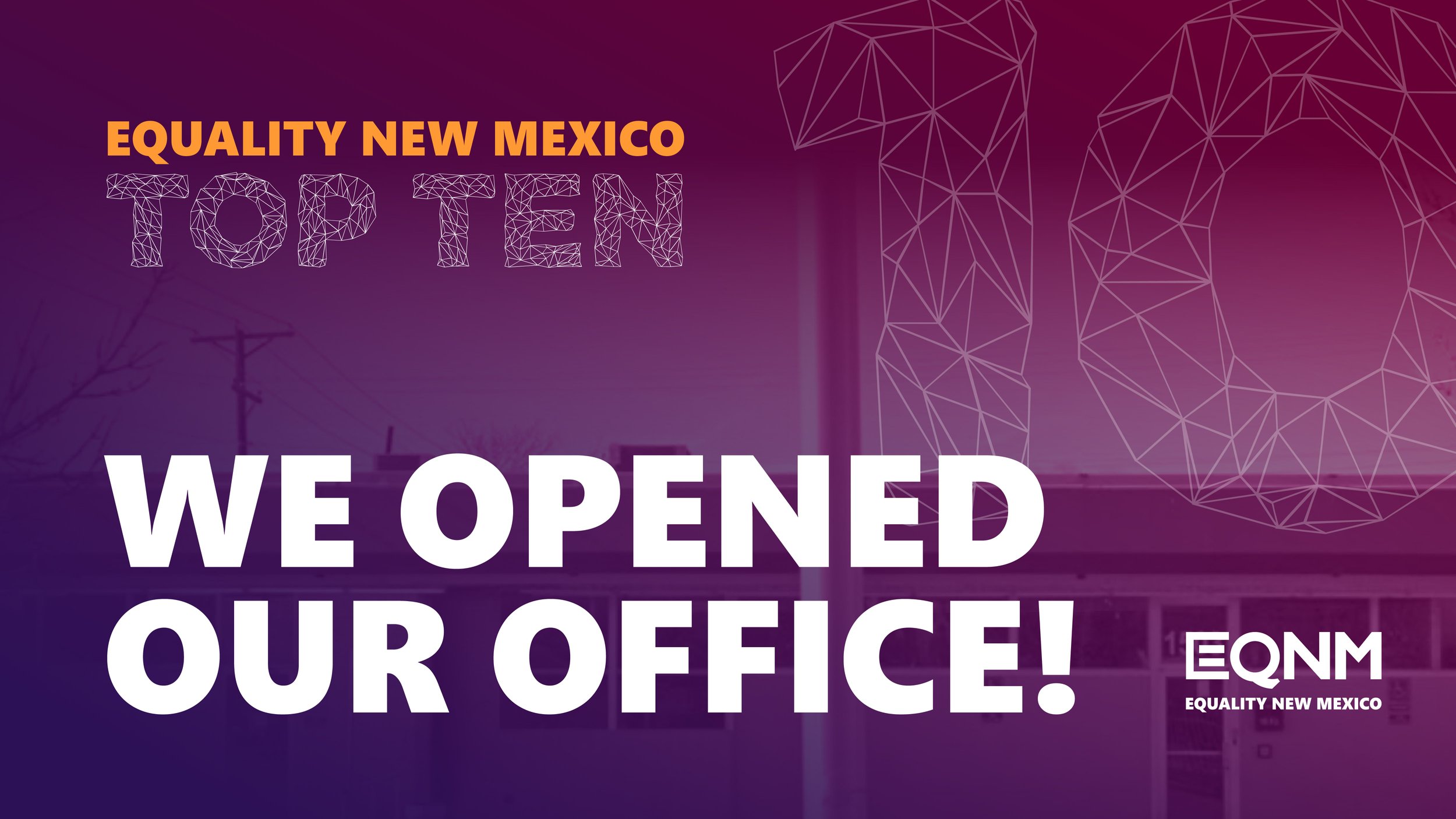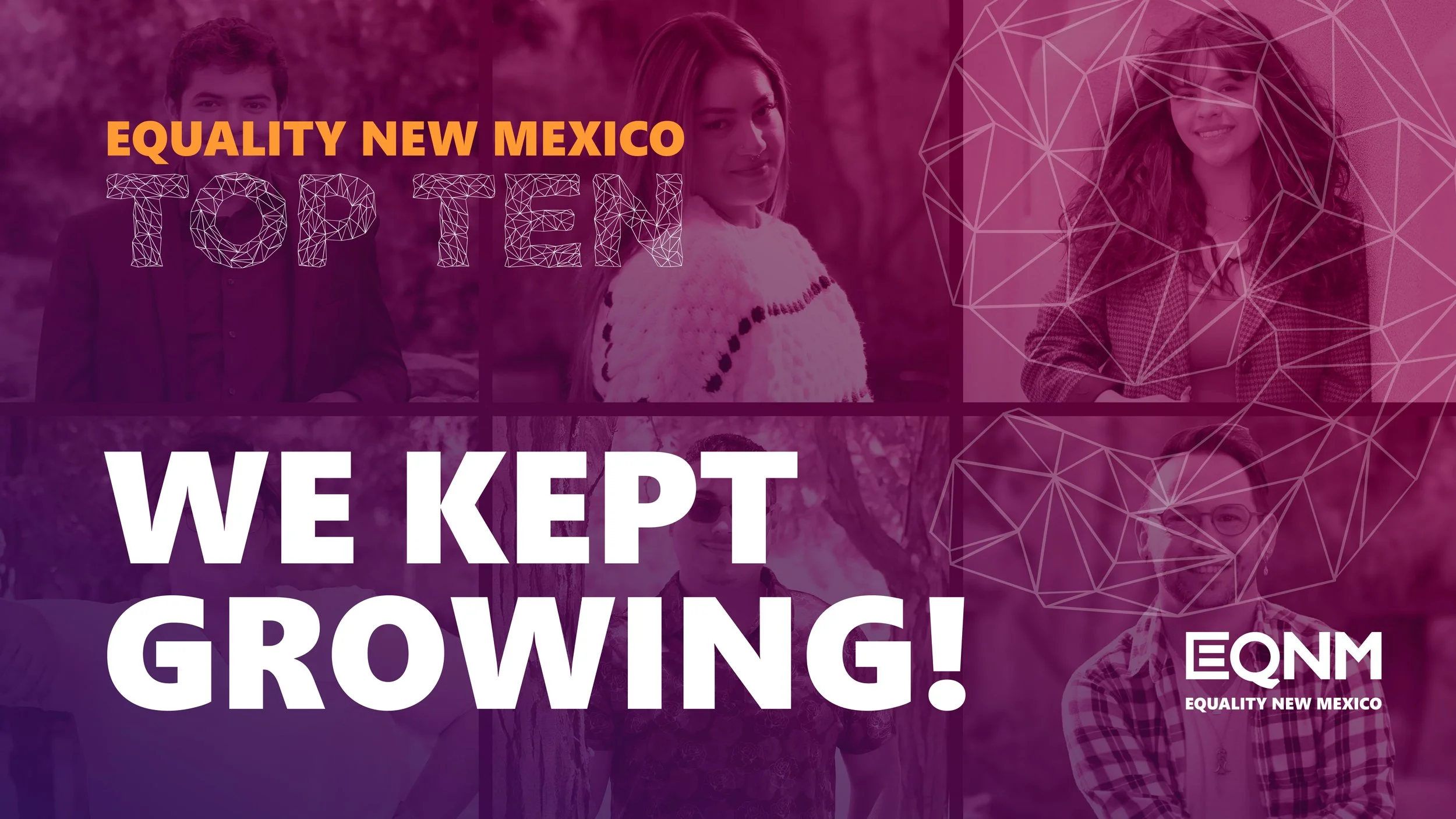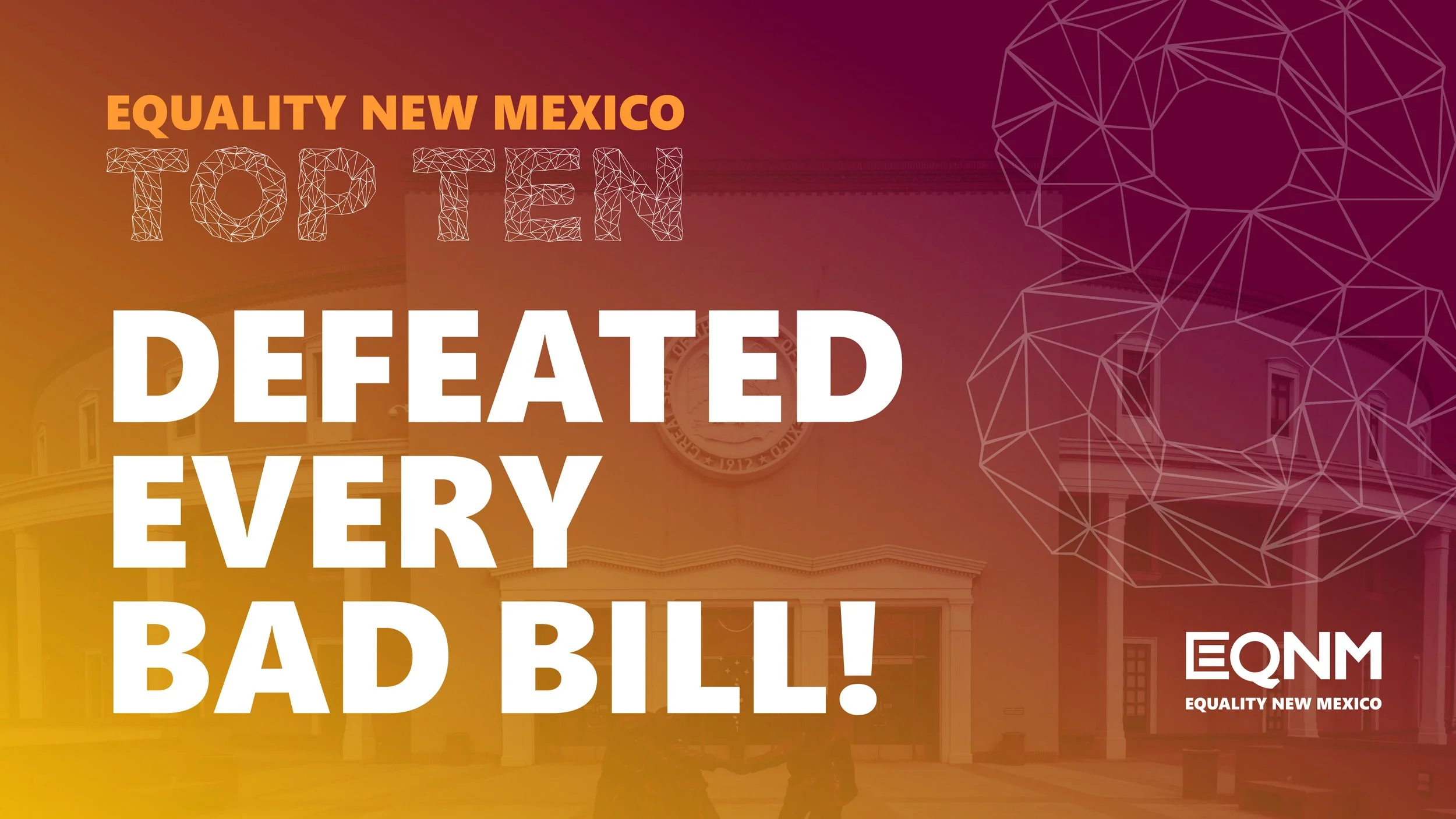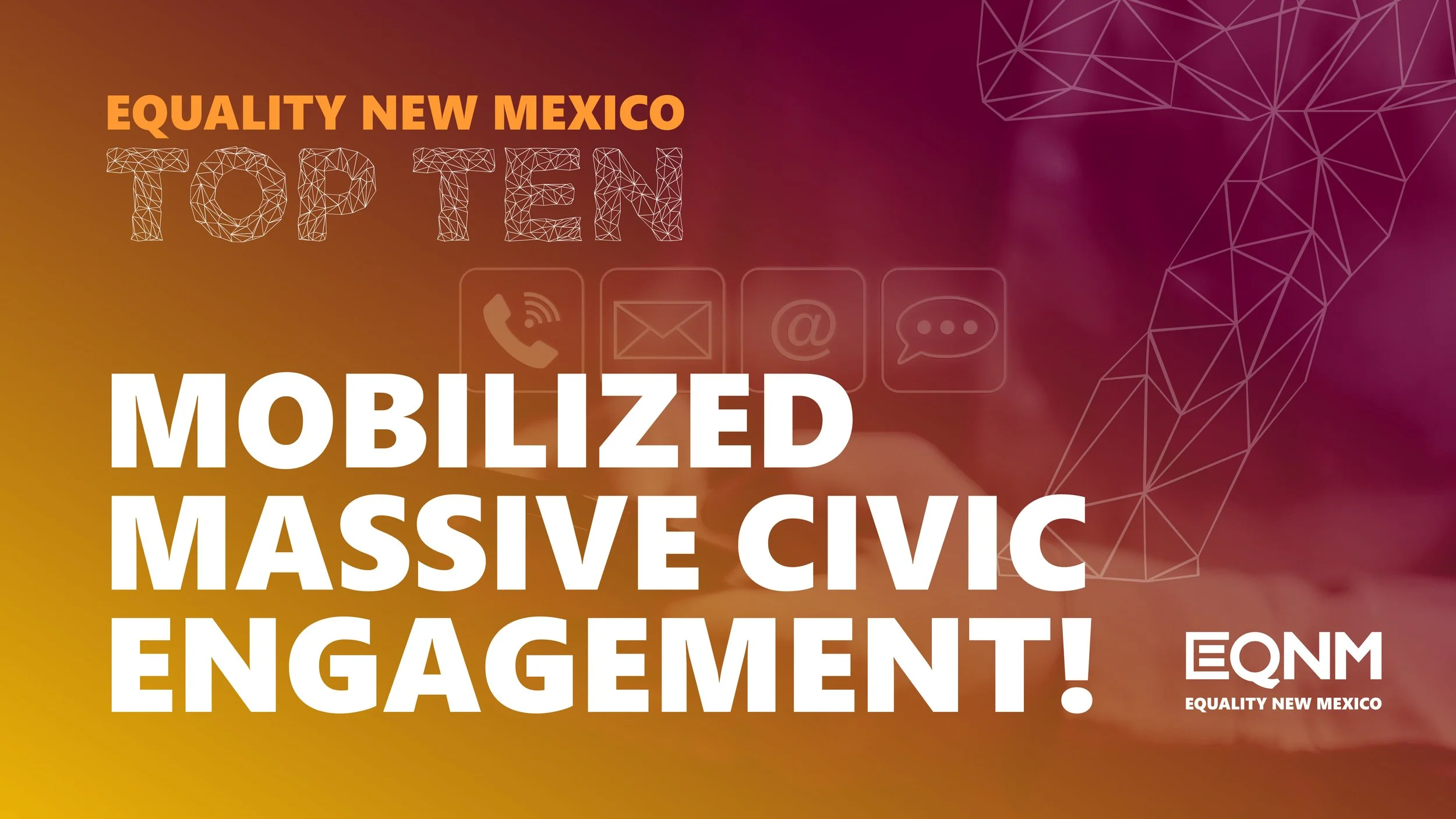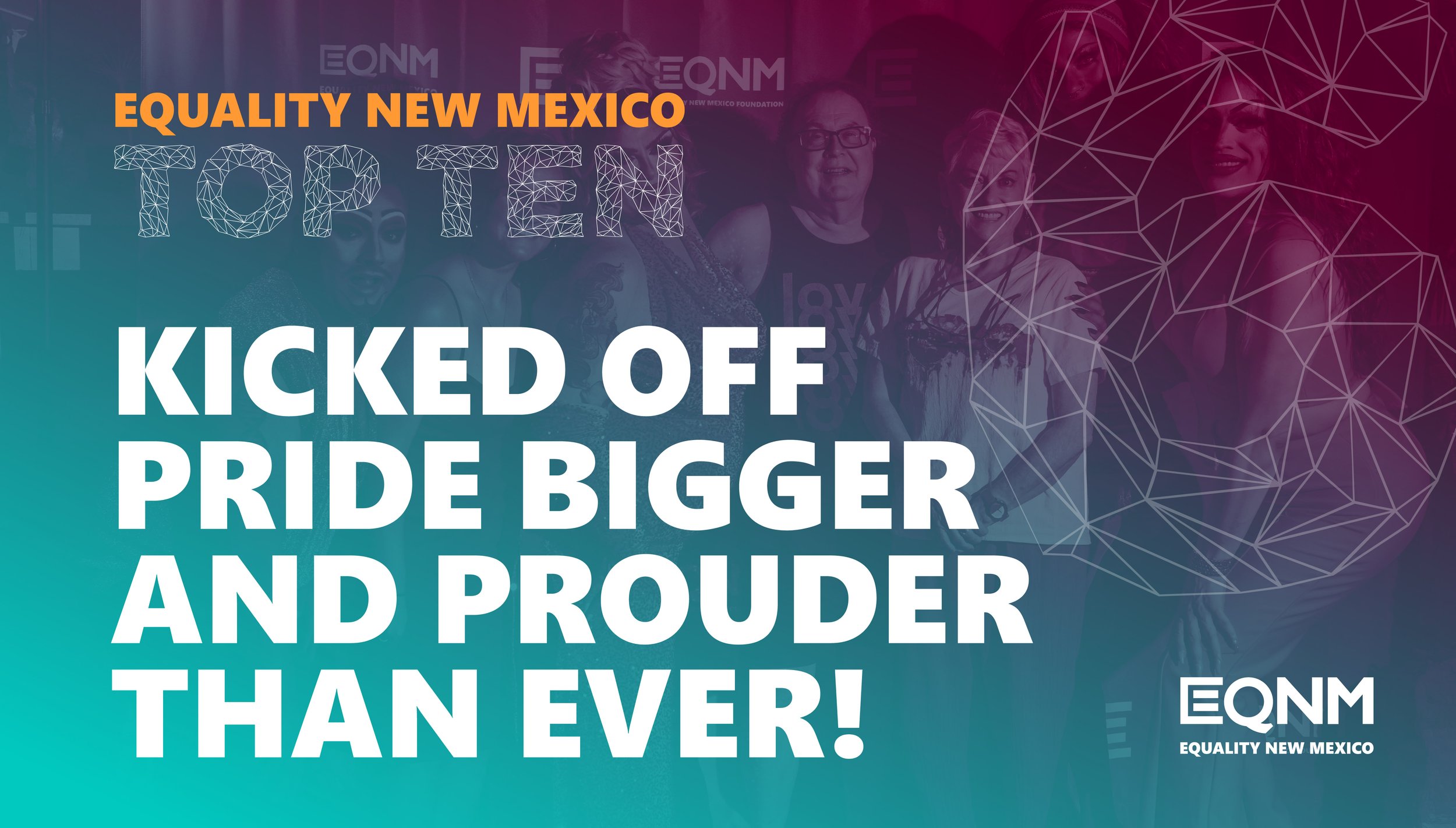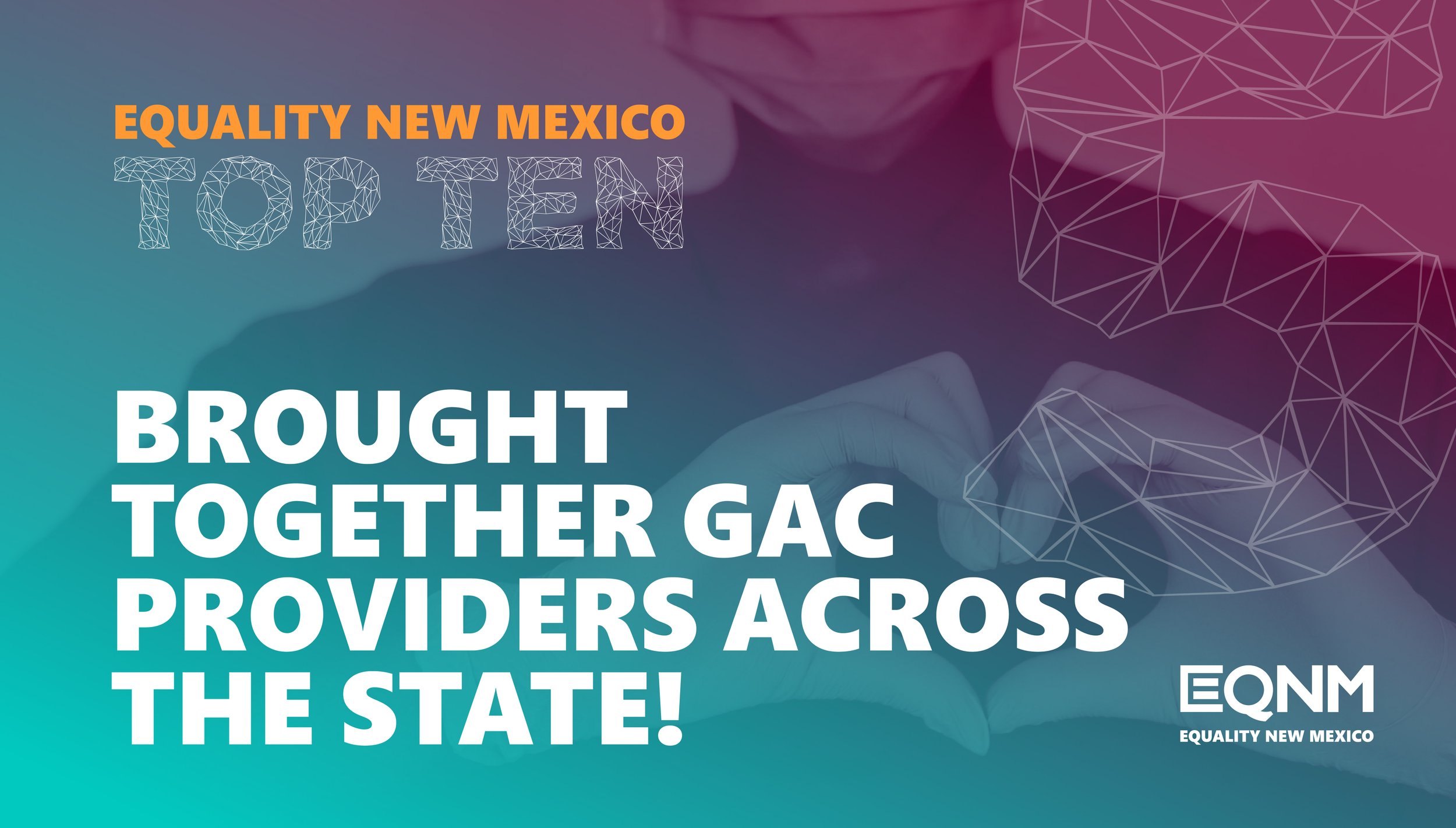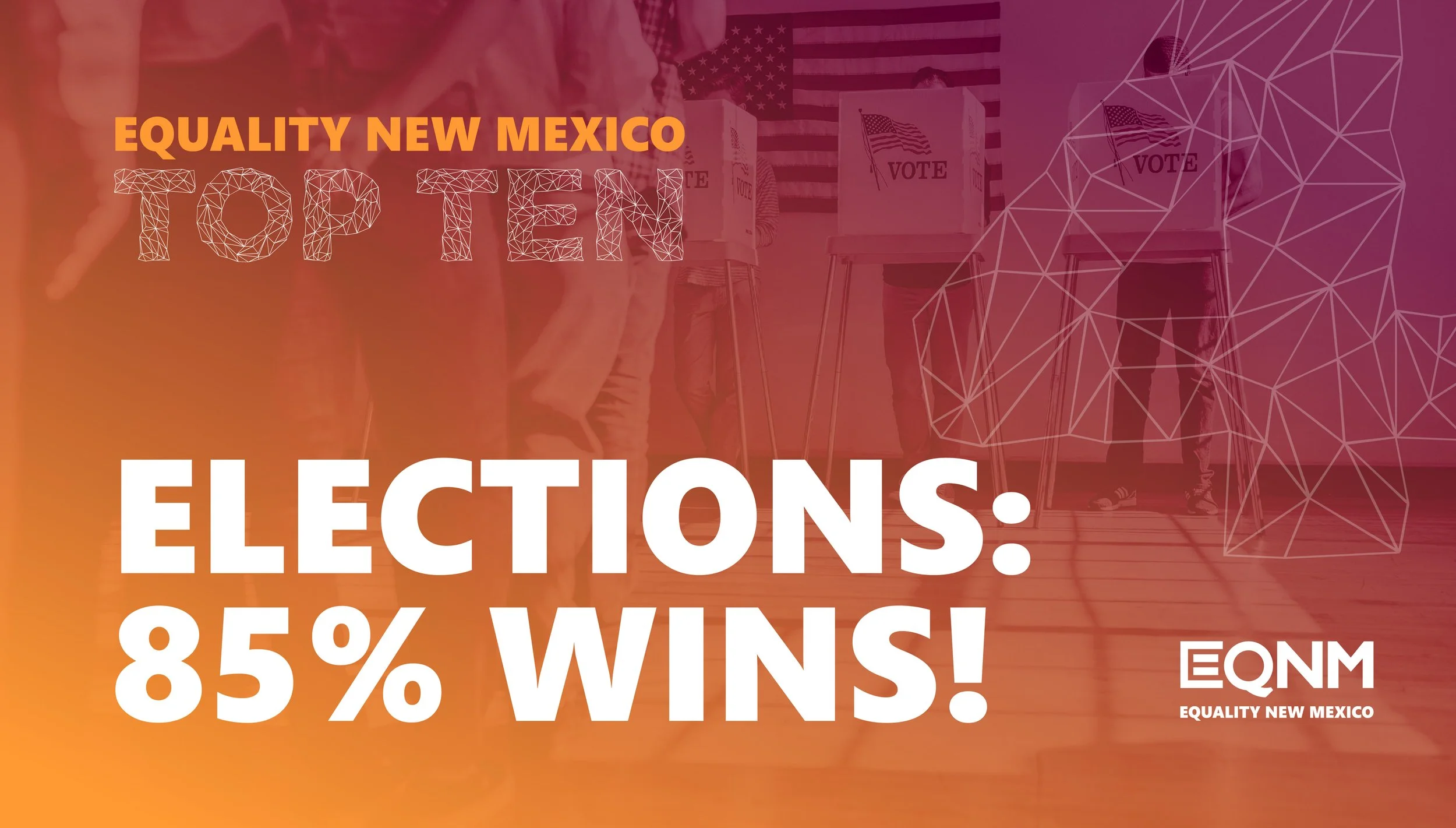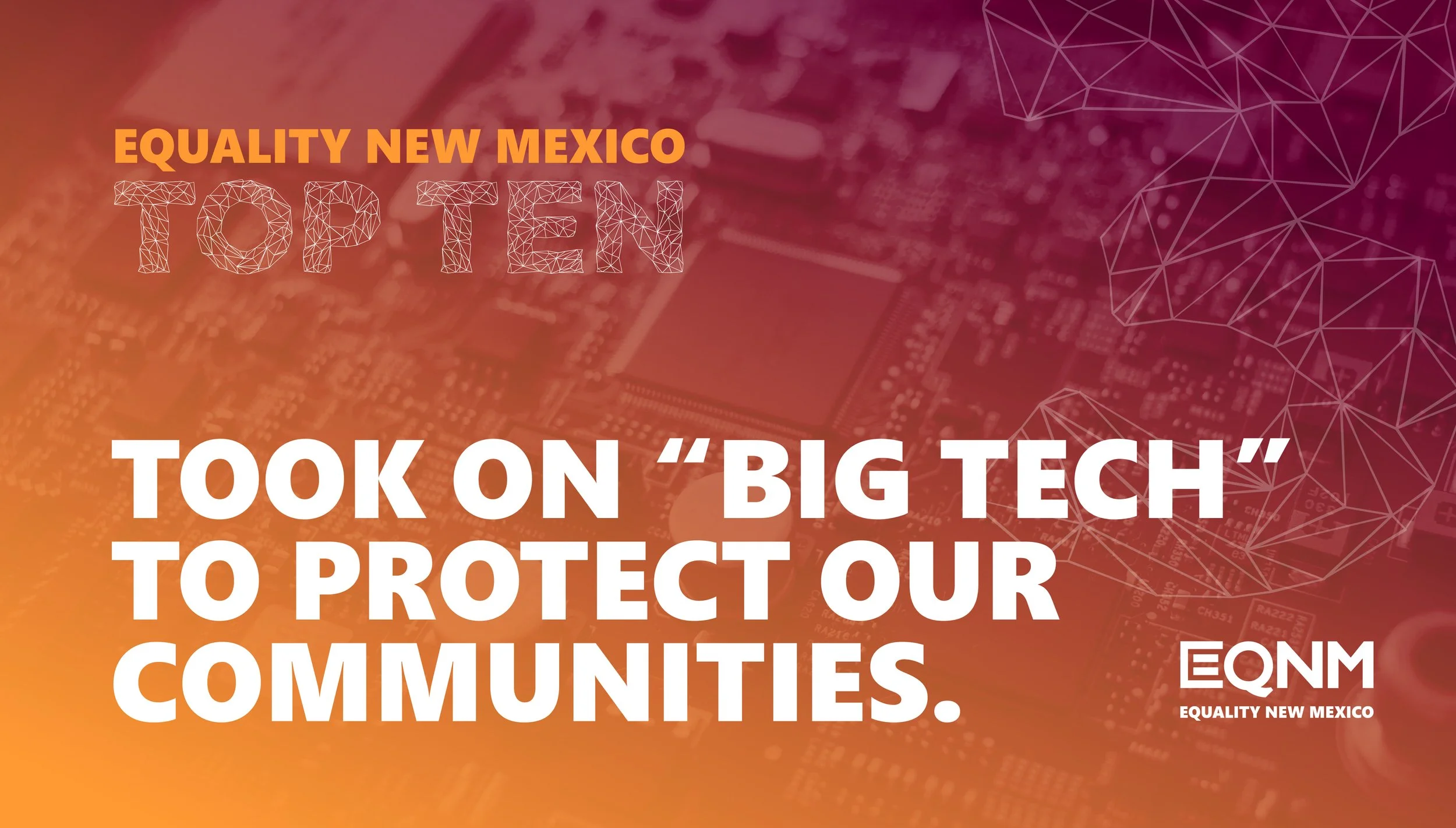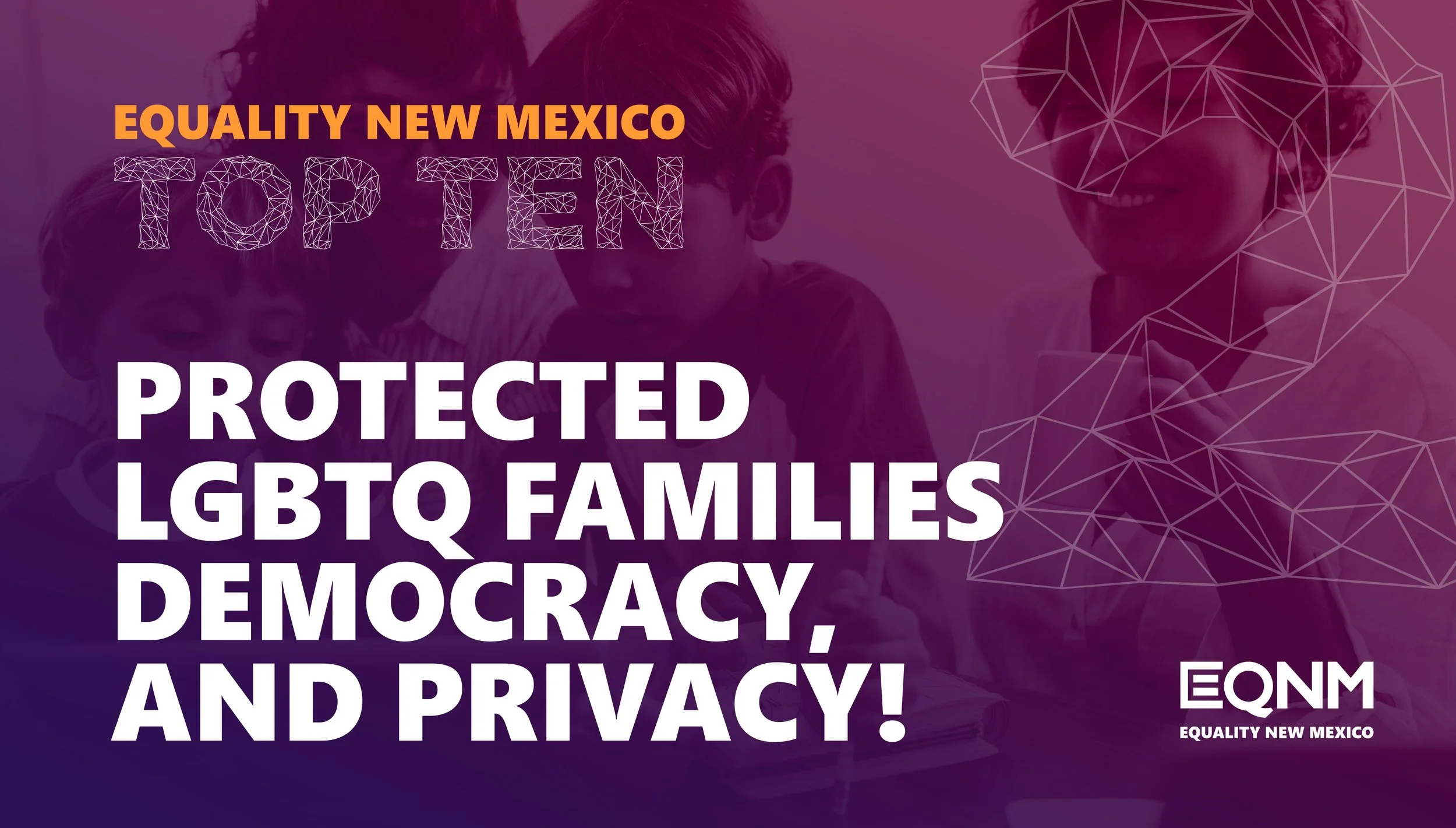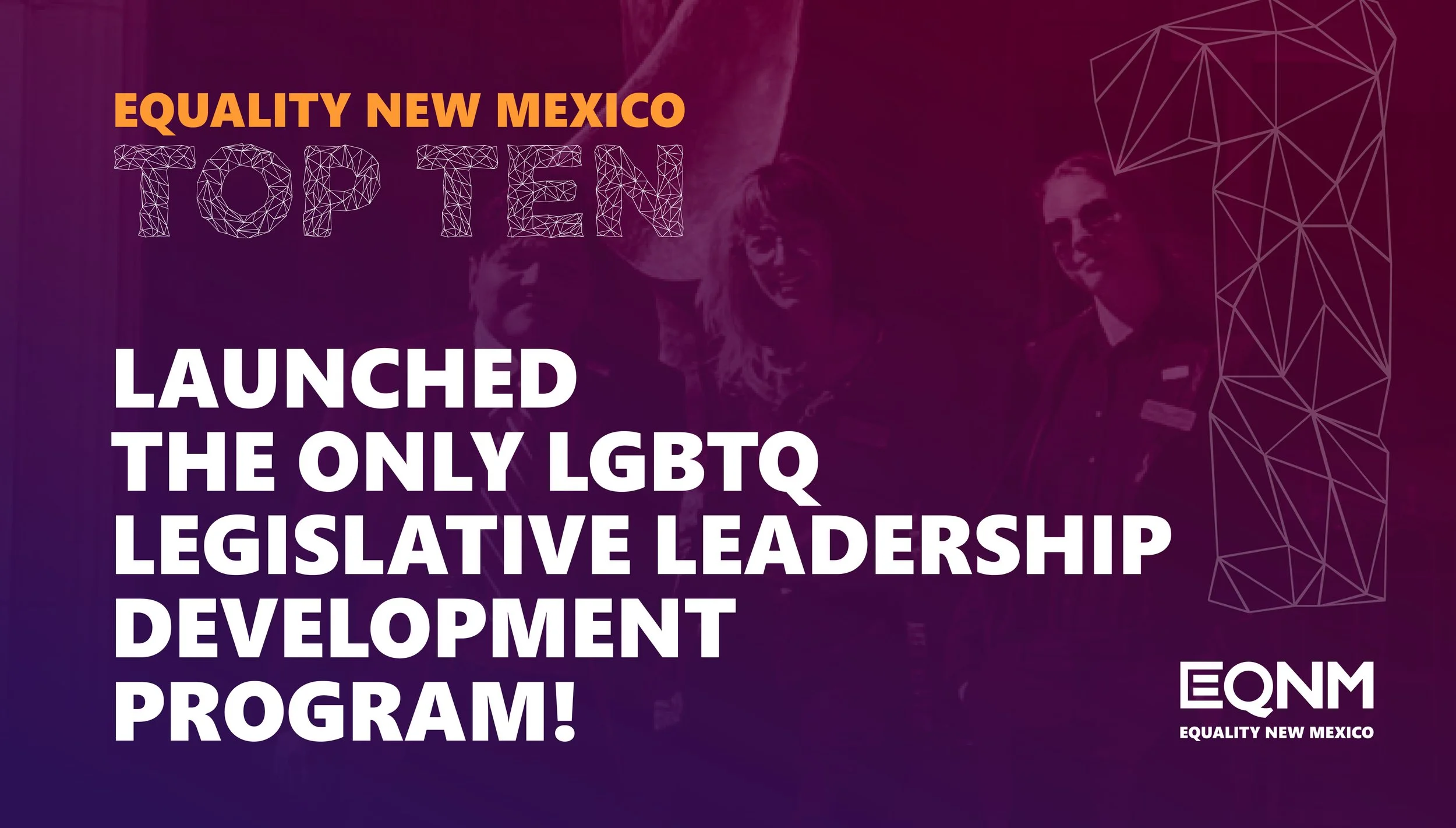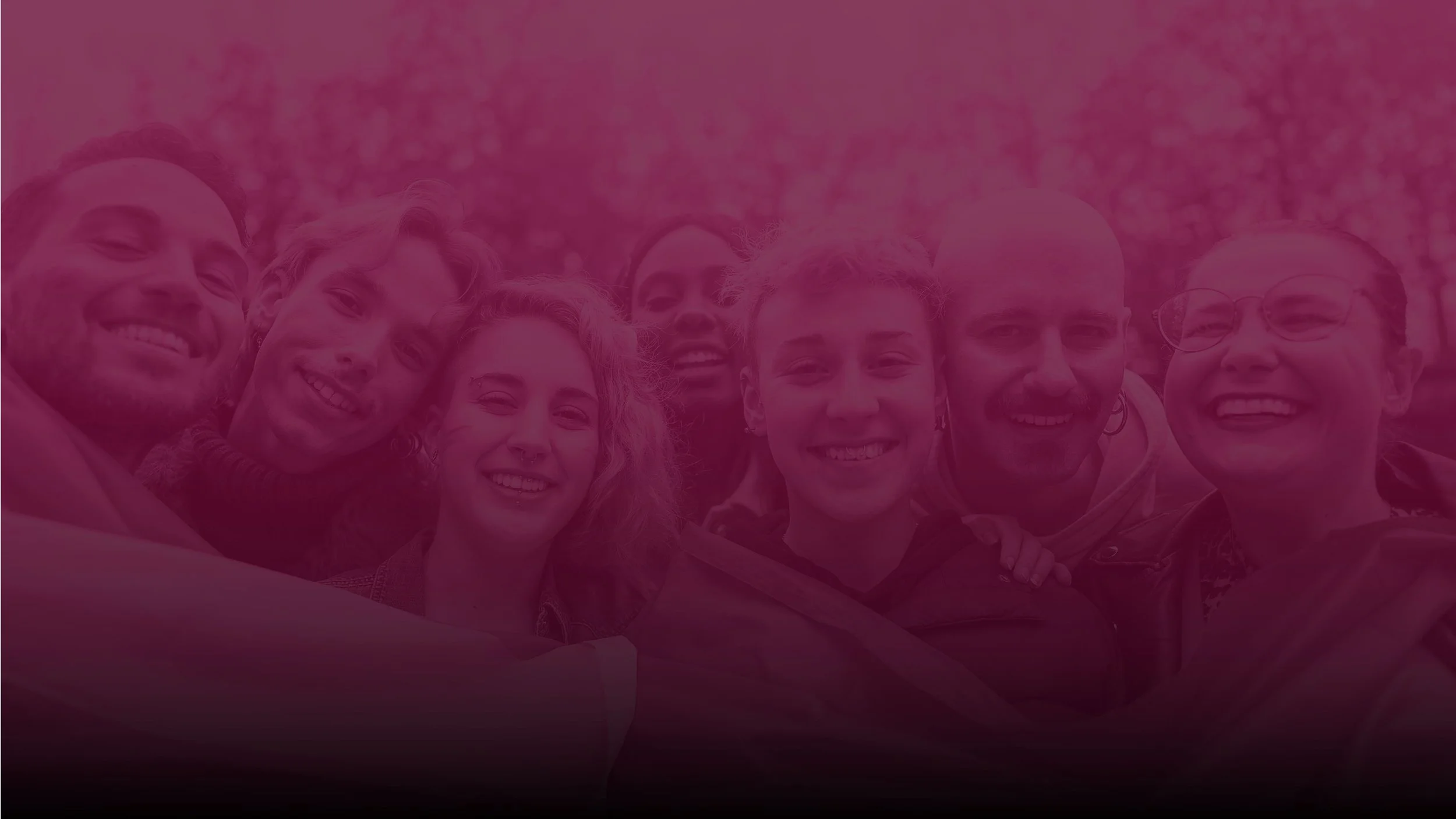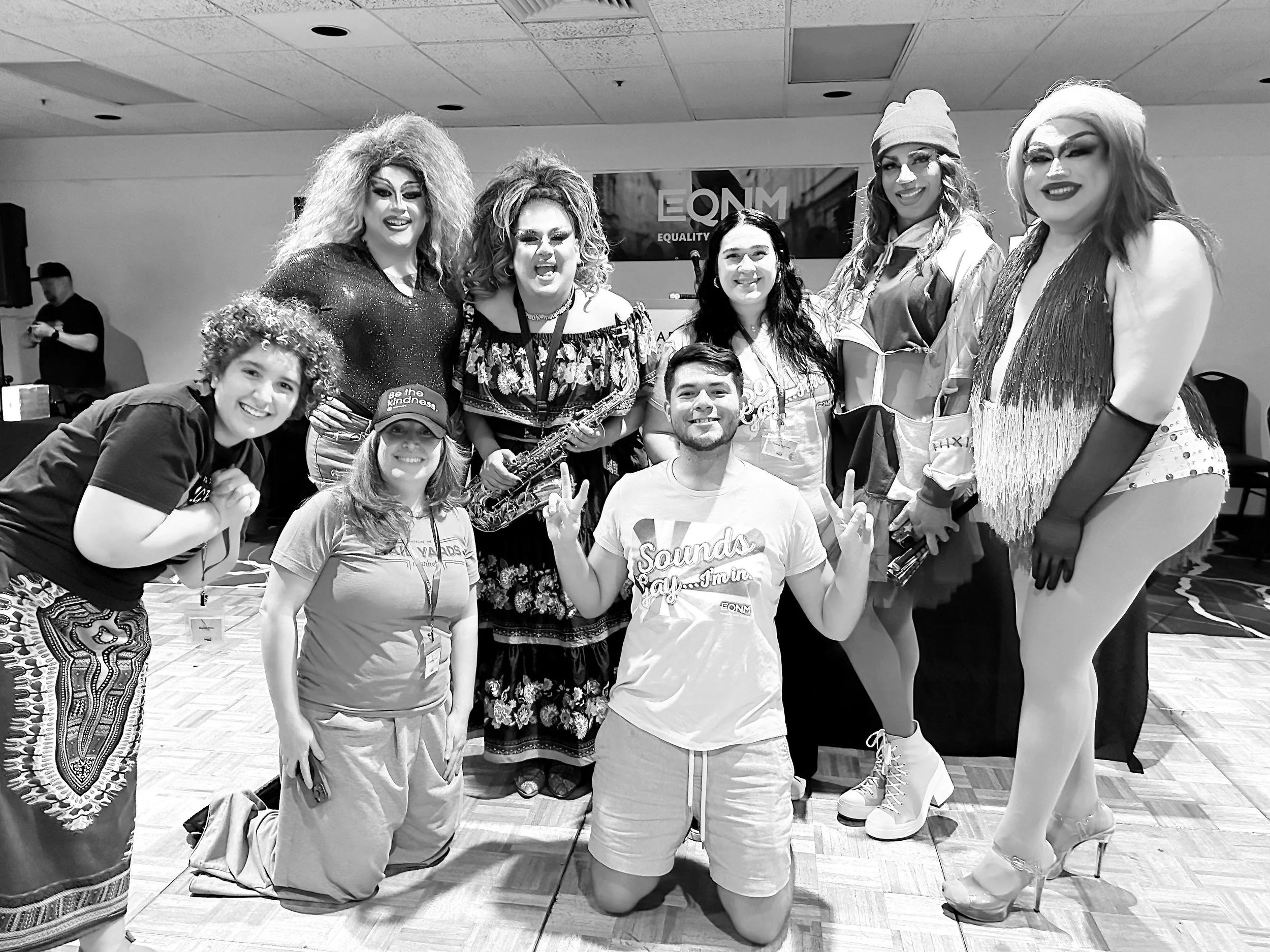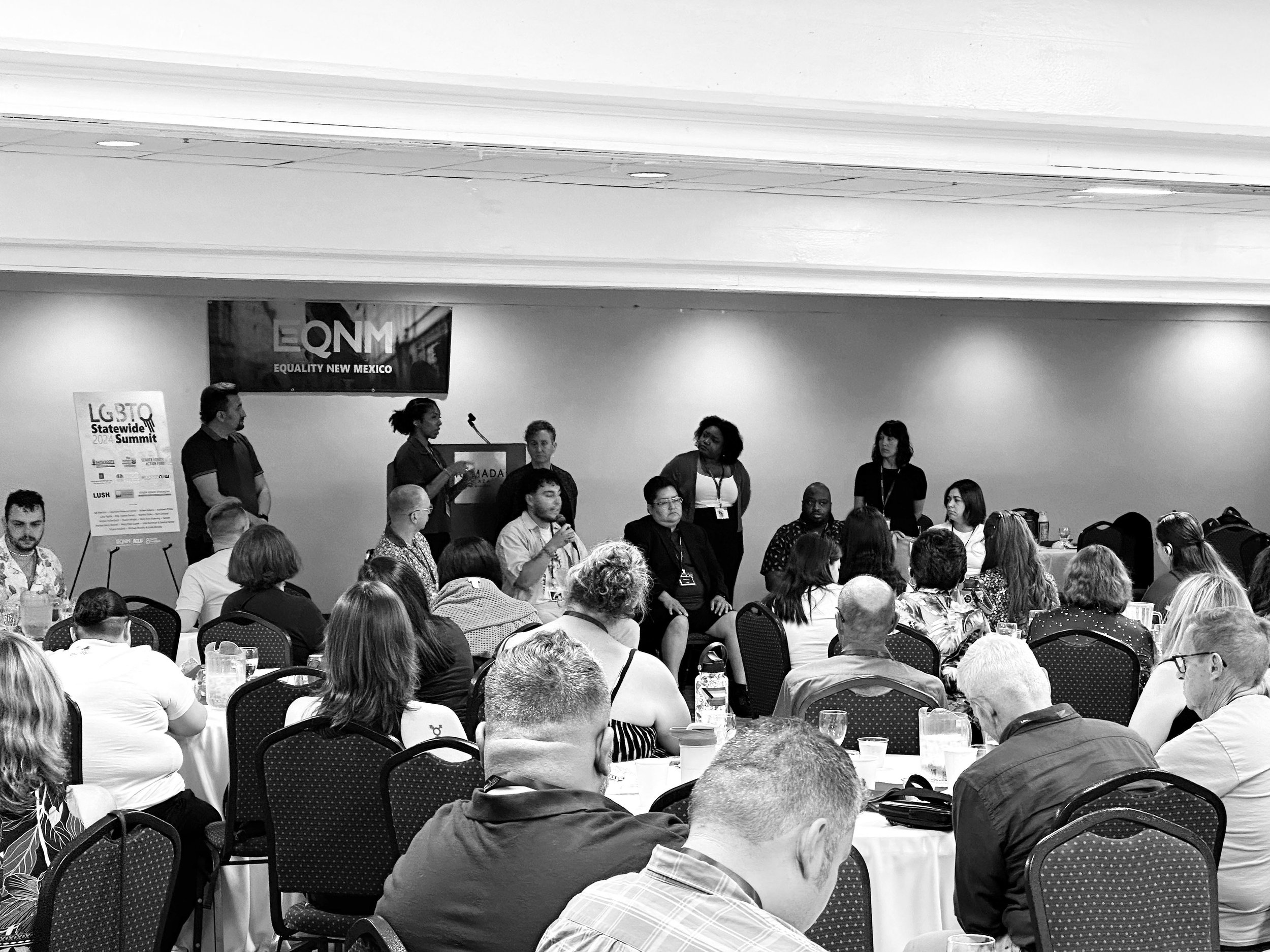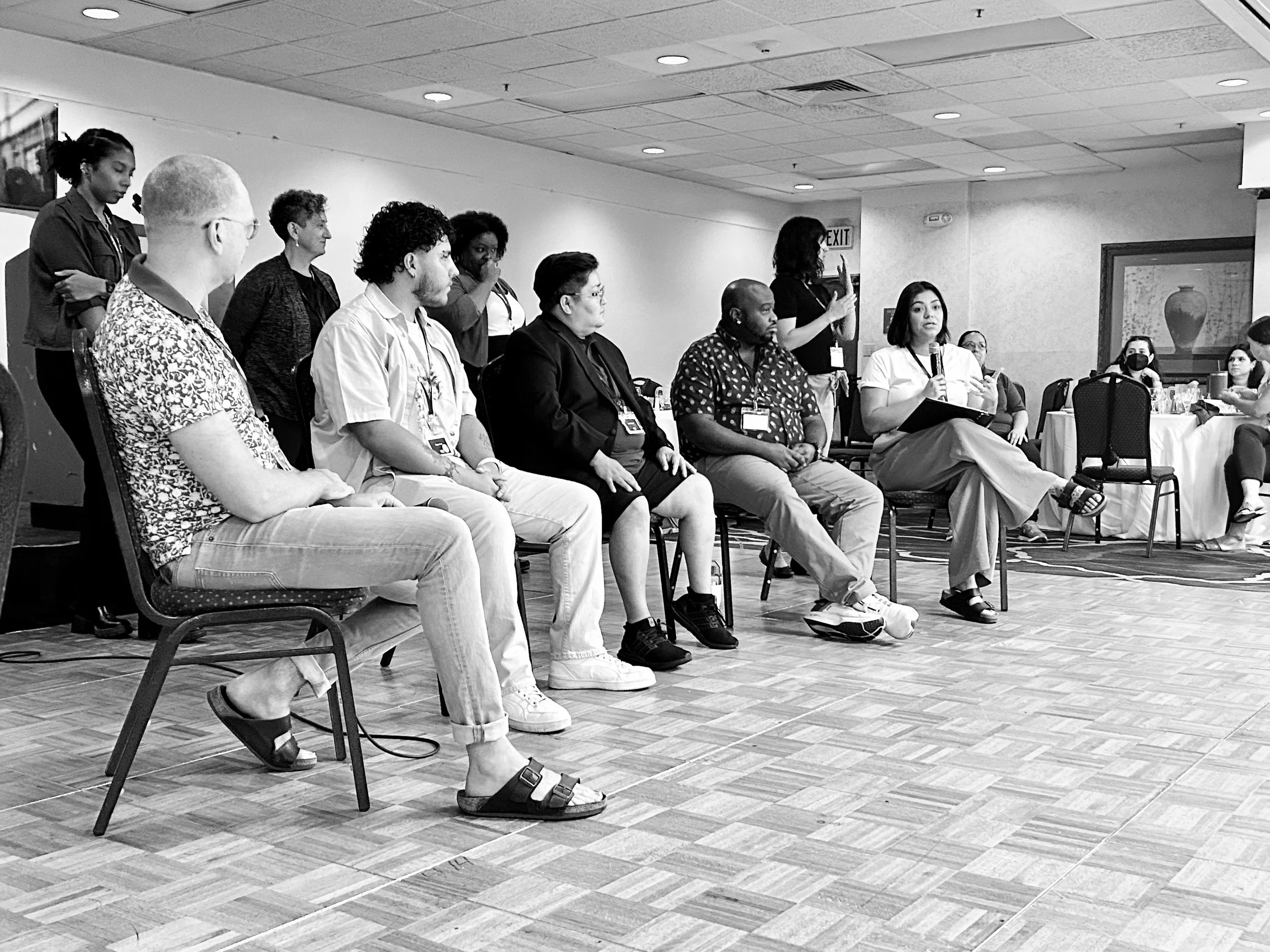There are only 8 days left in the 2026 Legislative Session and we need your help to keep things moving!
Over the past few weeks, our communities have been crucial in getting important legislation in front of advocates, legislators, and the Governor. This is a reminder to all of us how much we can accomplish when we come together and advocate for critical legislation for each other.
We saw an inspiring, massive public push for the Immigrant Safety Act, which ultimately was signed into law by the Governor by the third week of session! This proves that our voices matter and make a difference! But the work's not over, we’re not resting, and we need you in this fight with us.
There are key pieces of legislation that must pass in order to protect our freedom, health, and safety. Are you ready to help us get these bills across the finish line?
TAKE ACTION NOW
Here are a few pieces of legislation that we need you to plug into and fight for!
SB53: NMCHISPA
Our data privacy legislation that keeps our information out of the hands of the federal administration, hostile neighboring government agencies, and hateful individuals in our own communities needs to get through the Senate Judiciary Committee and the House quickly in order to pass! Tell your legislators to support SB53 through the link below!
https://goeqnm.org/NMCHISPASB53
HB292: Prison Rape Elimination Act
The federal government has rolled back protections for Intersex and Trans people who are incarcerated. We must protect every New Mexican - incarcerated or not - from sexual abuse and violence. This bill finally received a message from the governor, now we need your help to get this through the House and Senate rapidly! Tell your legislators to support PREA!
https://goeqnm.org/PREA
SB189: Gender-affirming Care and Reproductive Healthcare Insurance Coverage
Gender-affirming and Reproductive care are legally protected in New Mexico, but that’s not enough when we don't have affordable, guaranteed access to it. SB189 will require insurance coverage for full spectrum Gender-affirming and Reproductive care. Tell your legislators to support guaranteed access to affordable Reproductive and Gender-affirming care!
https://goeqnm.org/SB189
SB40: Driver Privacy and Safety Act
This legislation addresses tools used by local and state law enforcement like automated license plate readers to ensure our location data isn’t being accessed by hostile federal and neighboring state agencies. We know that people receiving Reproductive or Gender-affirming healthcare are already being tracked. New Mexico must protect our rights to freedom, health, and safety. Tell your legislators to protect our freedom to move!
HB137: Buprenorphine Stock Requirement
This bill will require all pharmacies to keep buprenorphine (Soboxone) in stock, a life-saving medication that helps reduce craving and withdrawal symptoms for those battling opioid use disorder. New Mexico is facing a growing overdose crisis, we need real solutions. Buprenorphine is proven to reduce overdose and relapses. Tell your legislators to support HB137!
https://goeqnm.org/HB137











